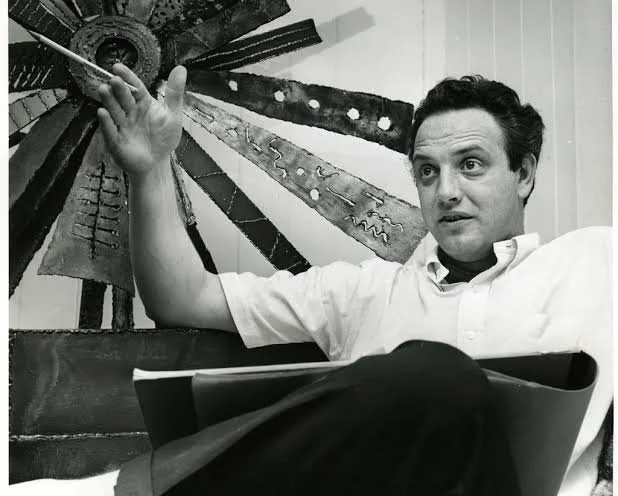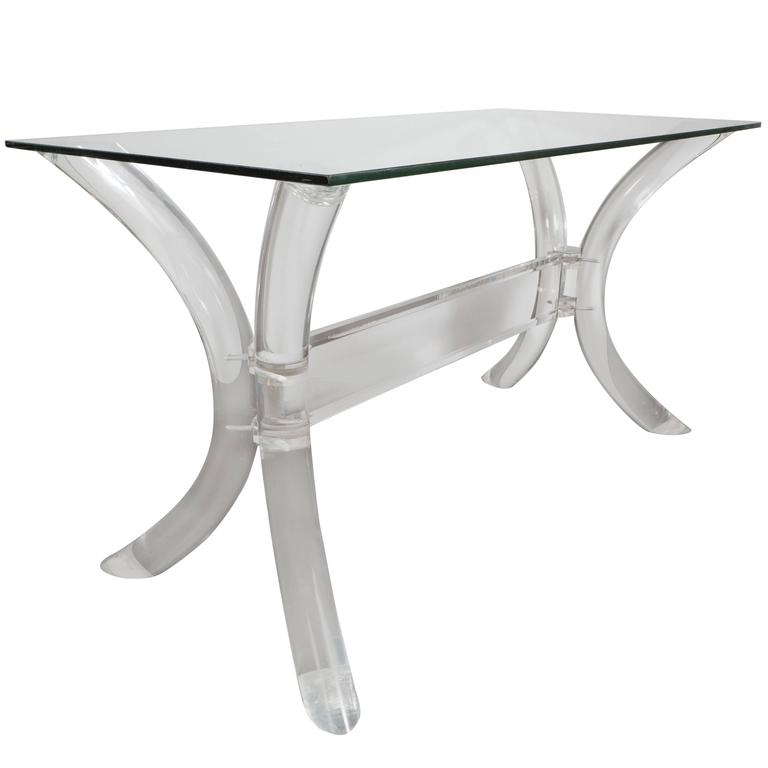Mid-Century Brutalist Wall Mounted Patchwork Cabinet Signed Paul Evans 68
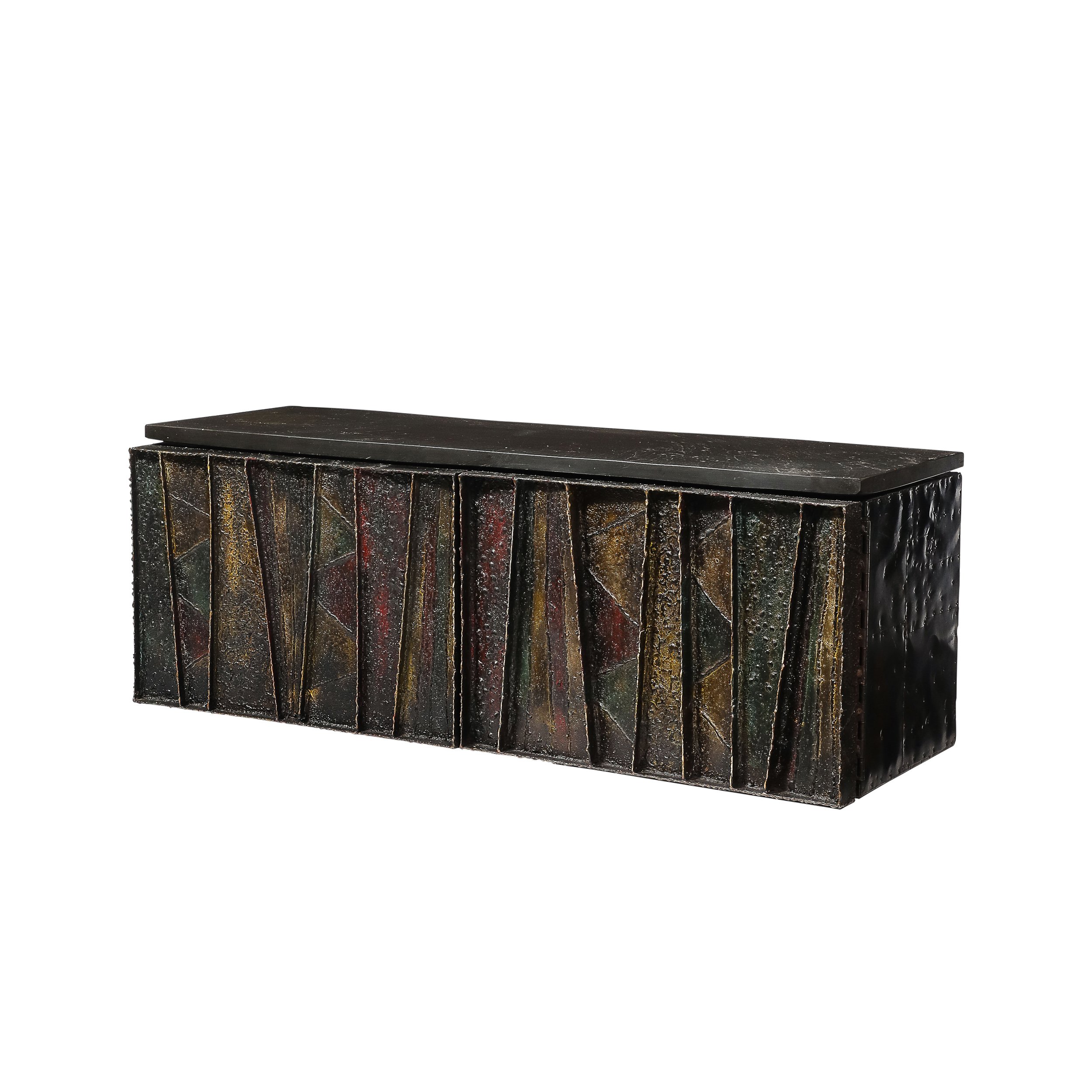
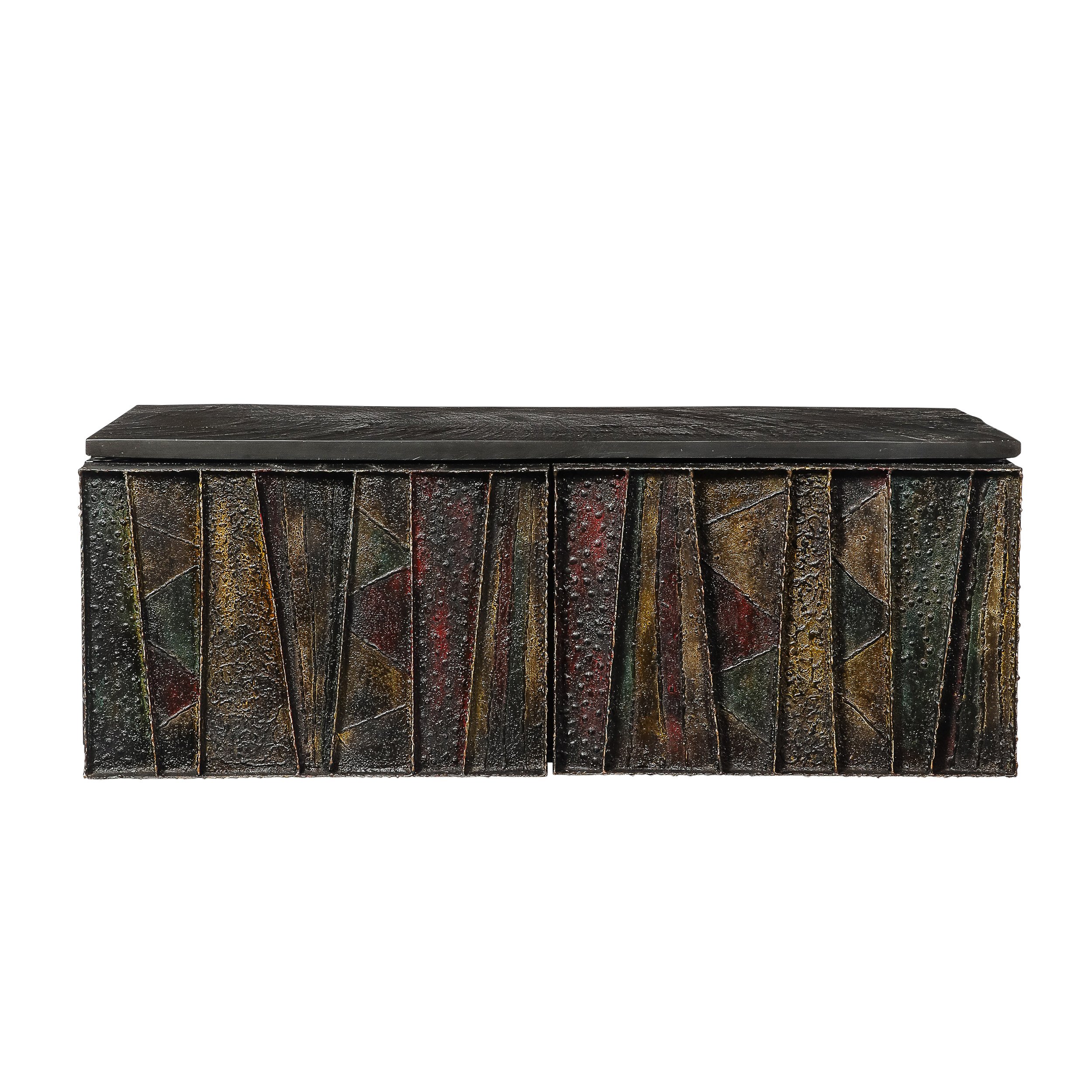
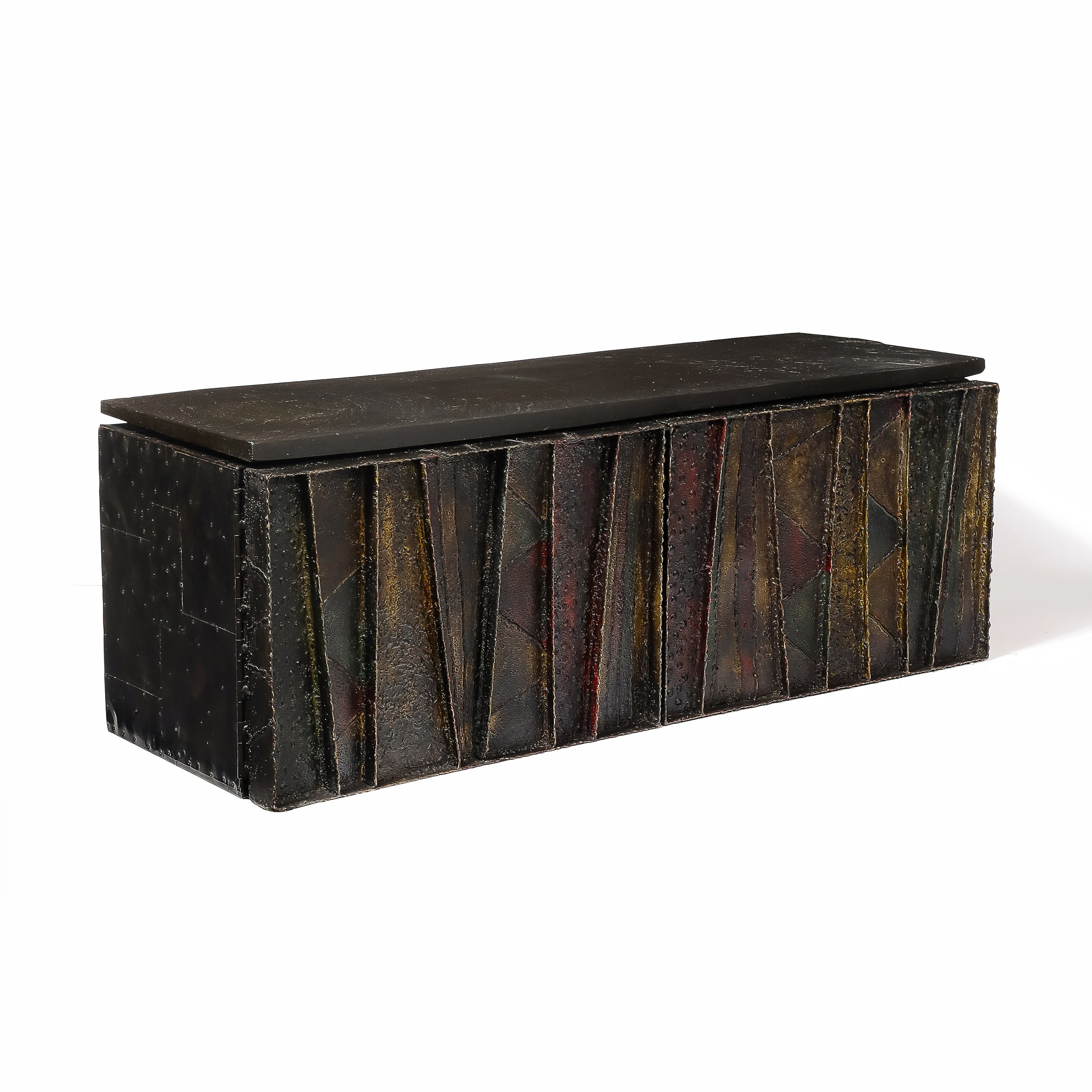
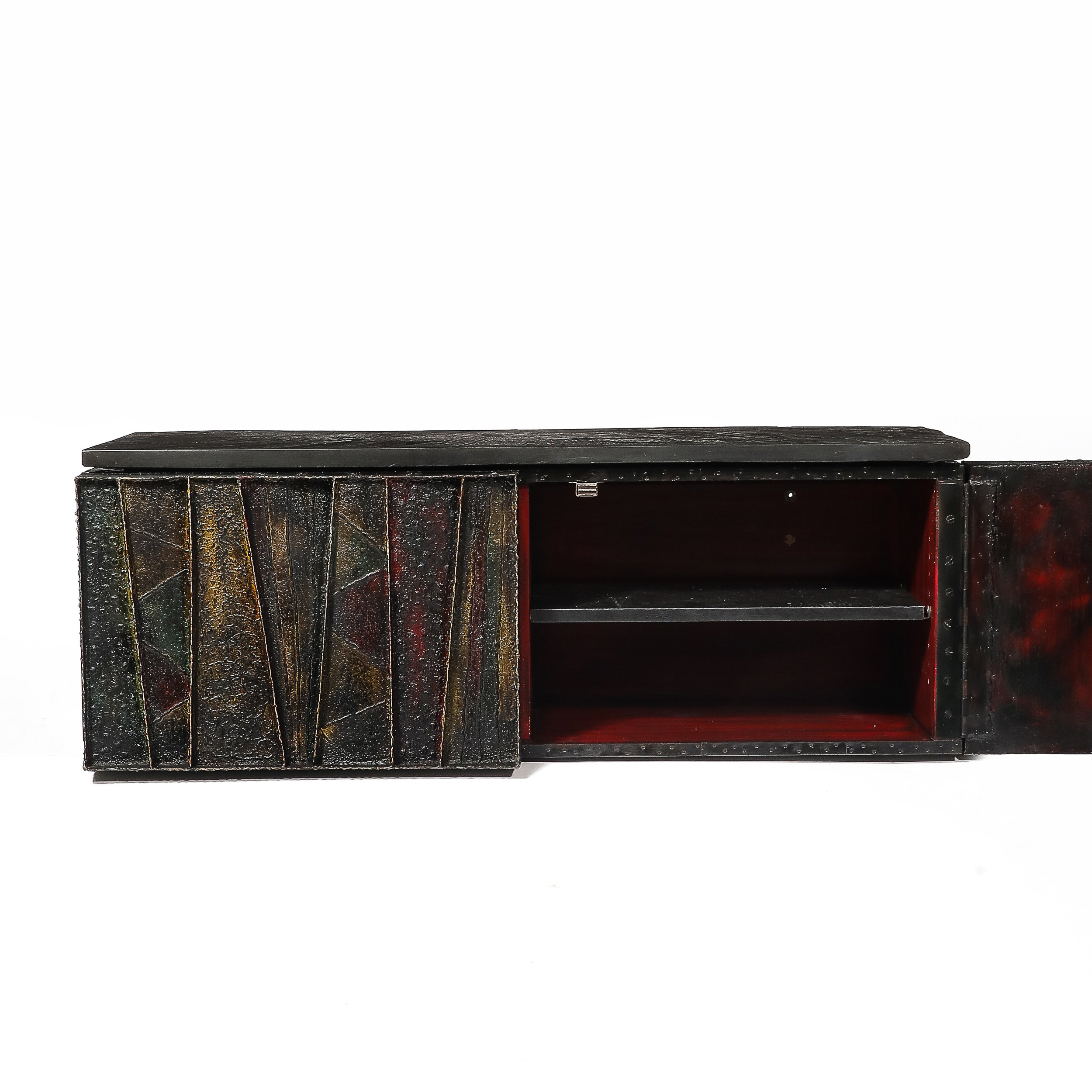
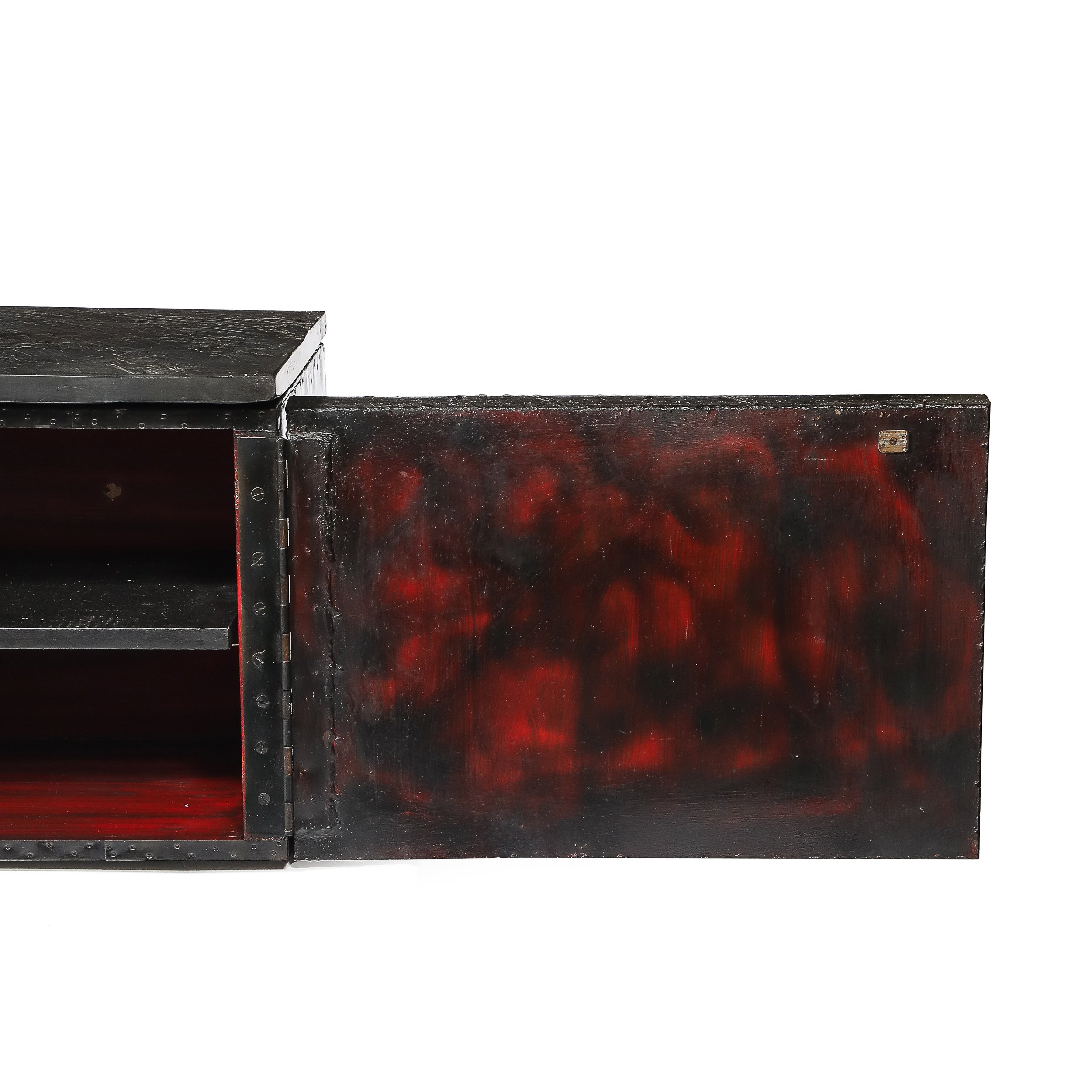
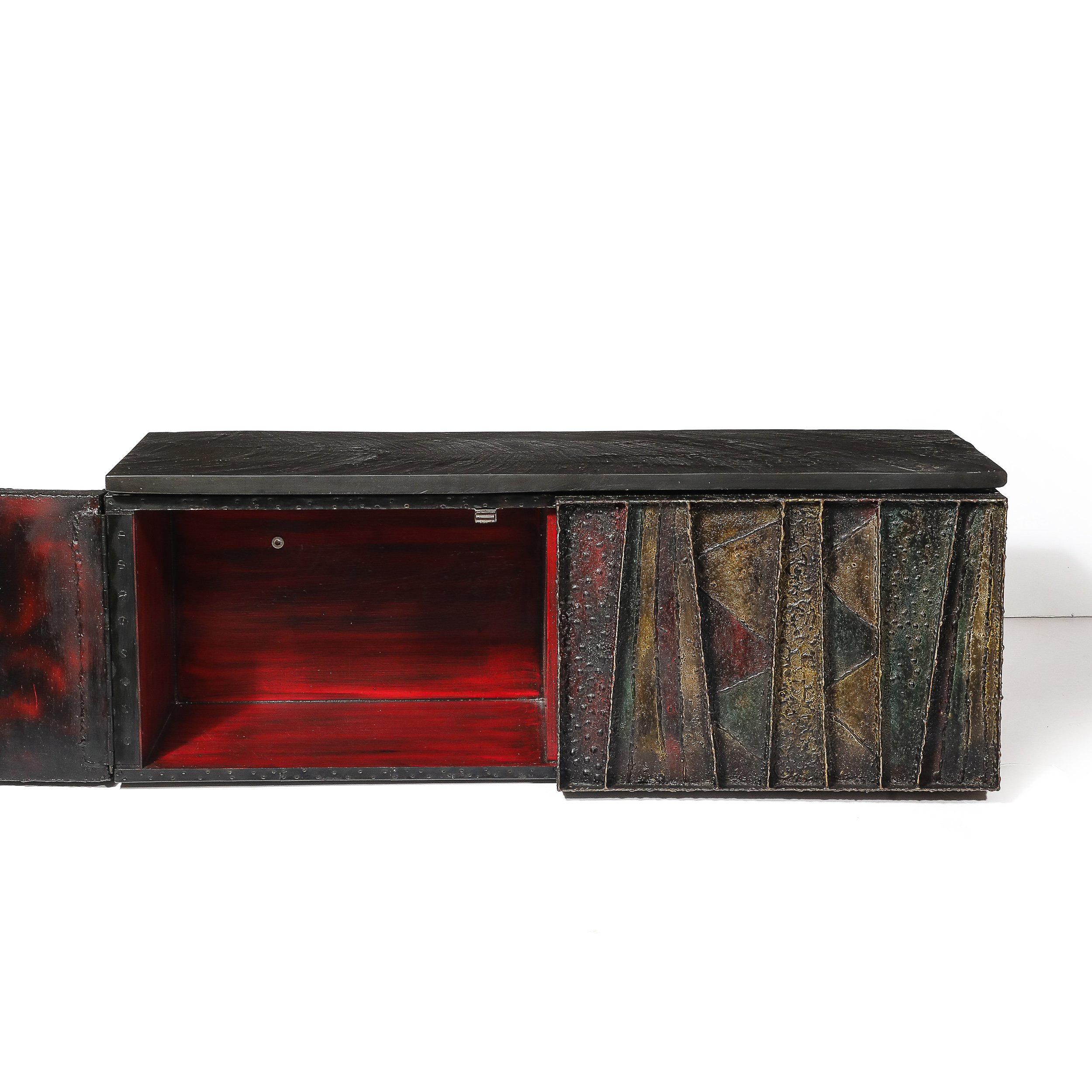
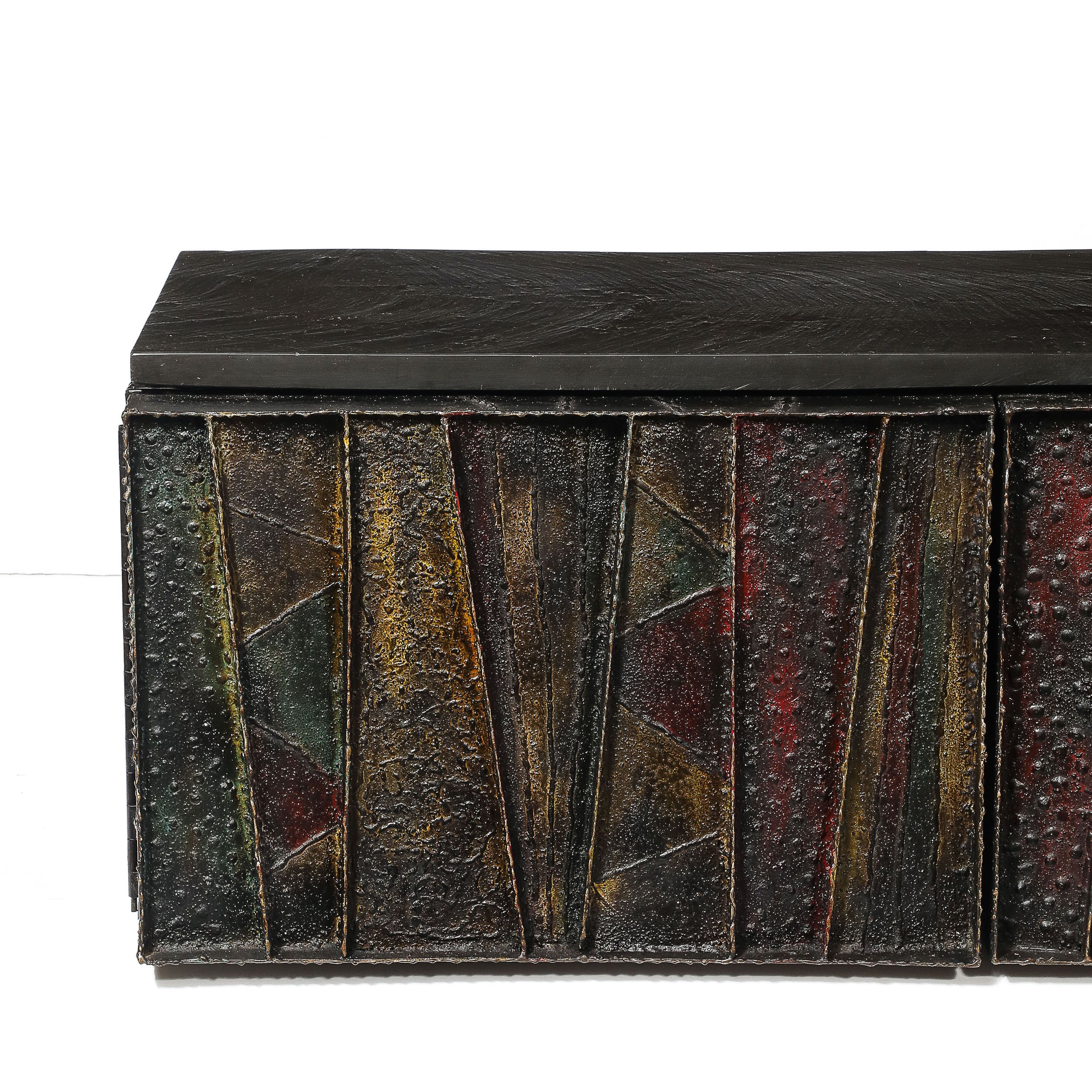
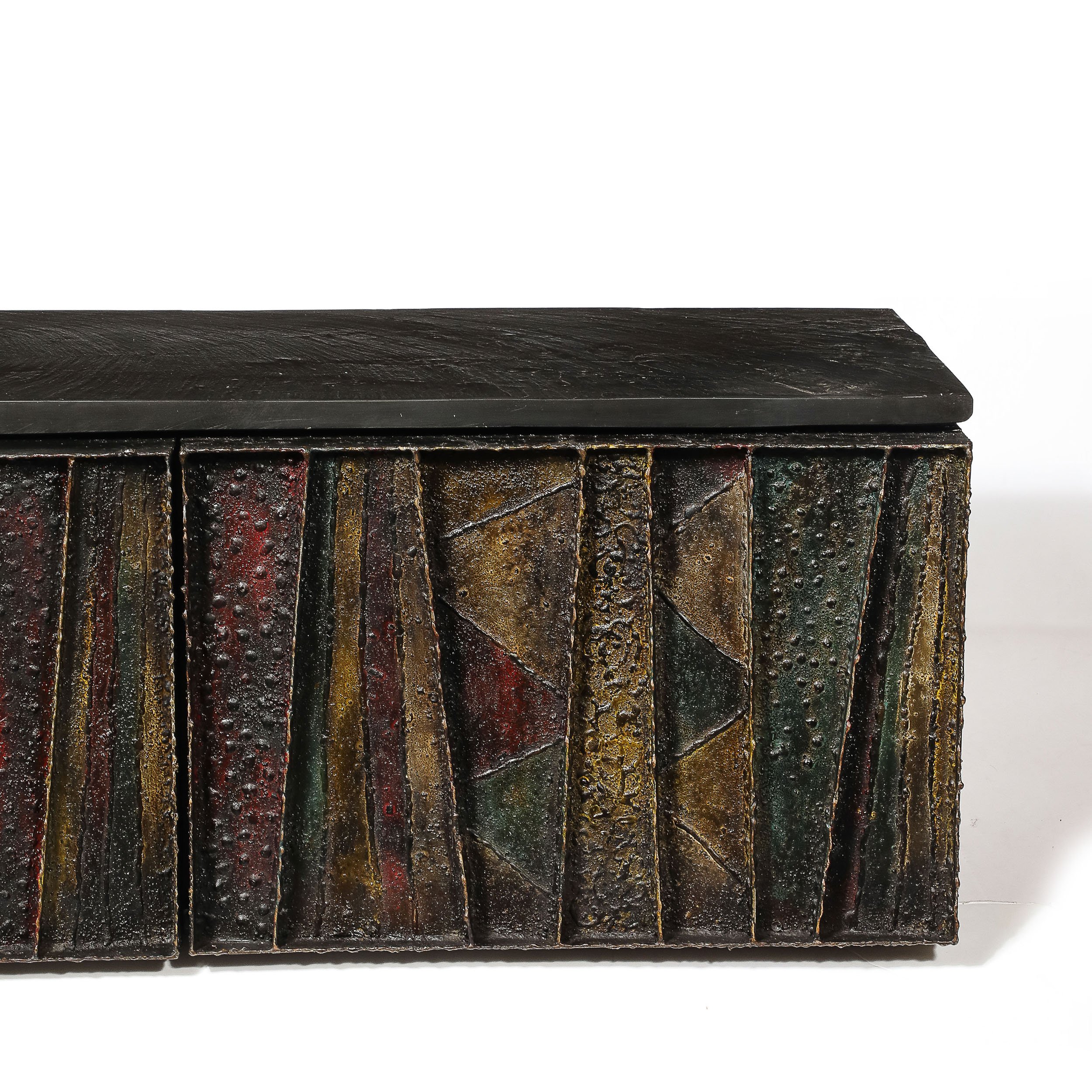
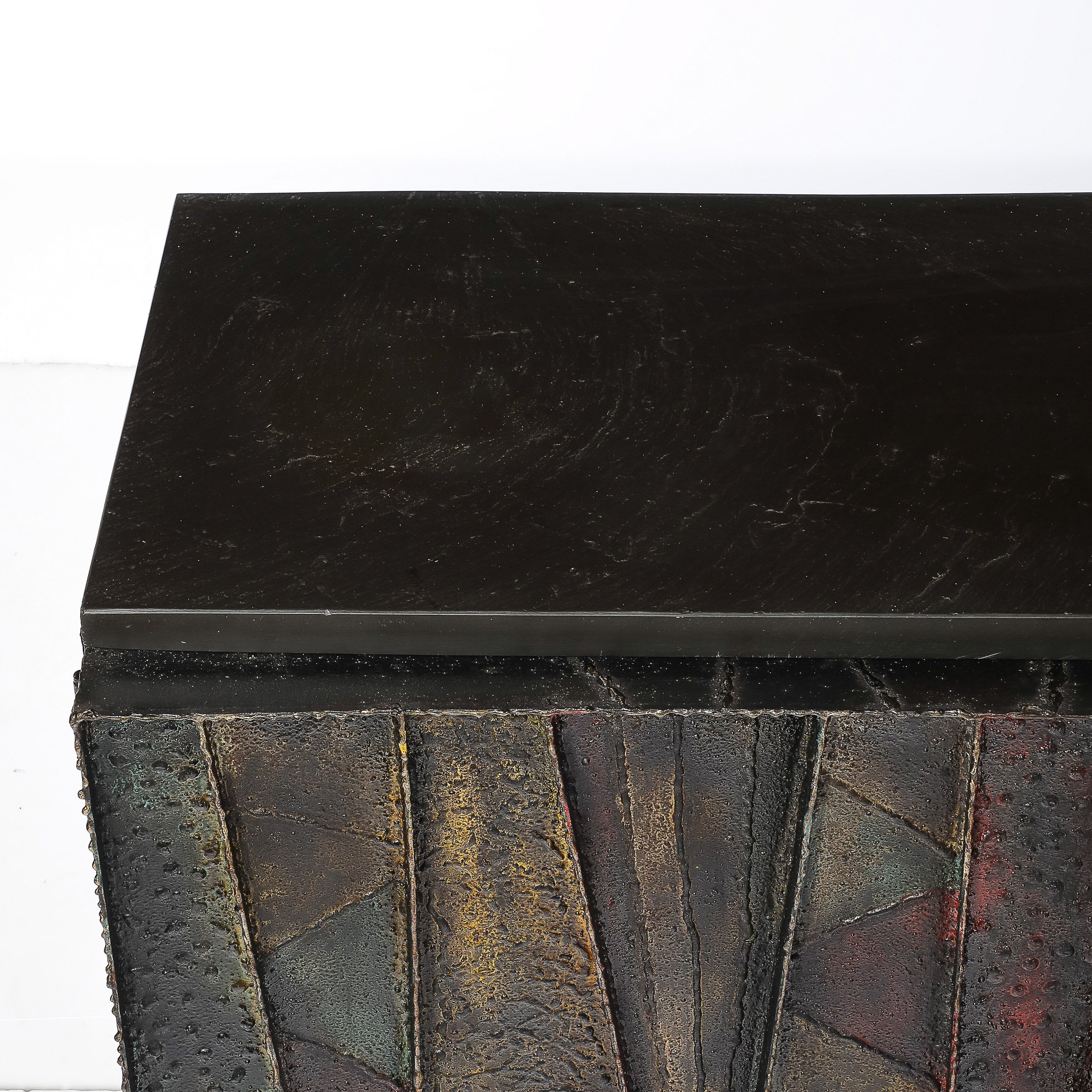
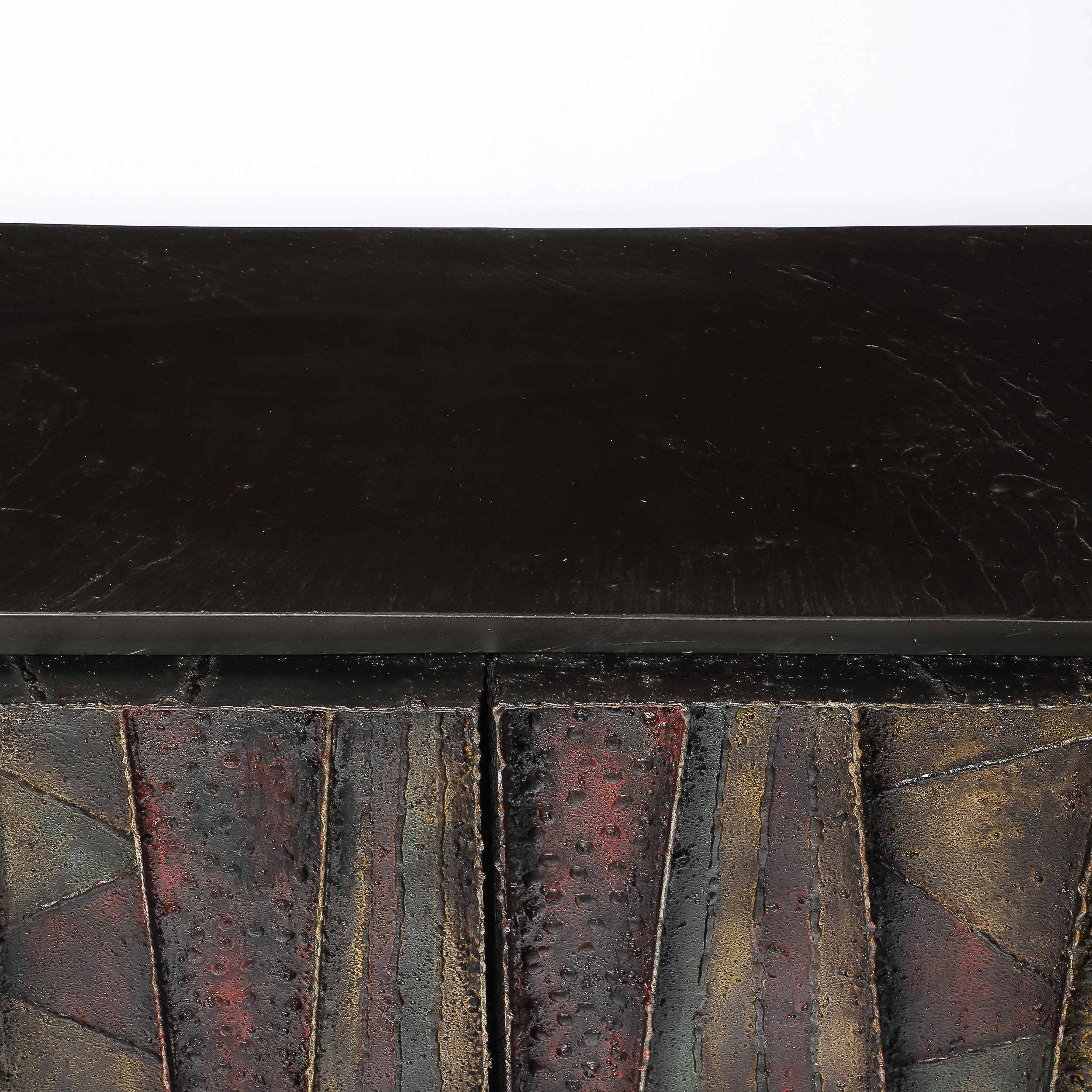
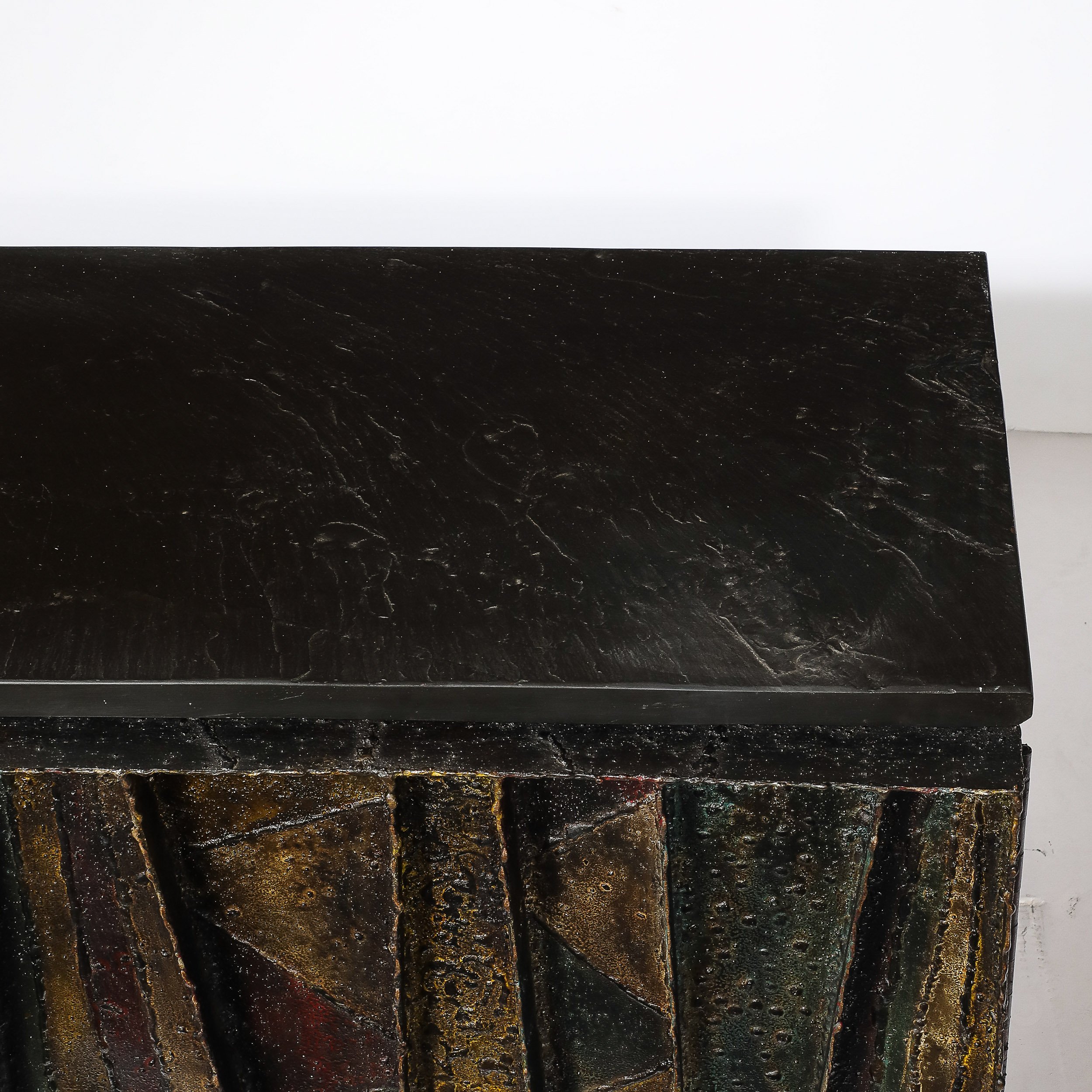
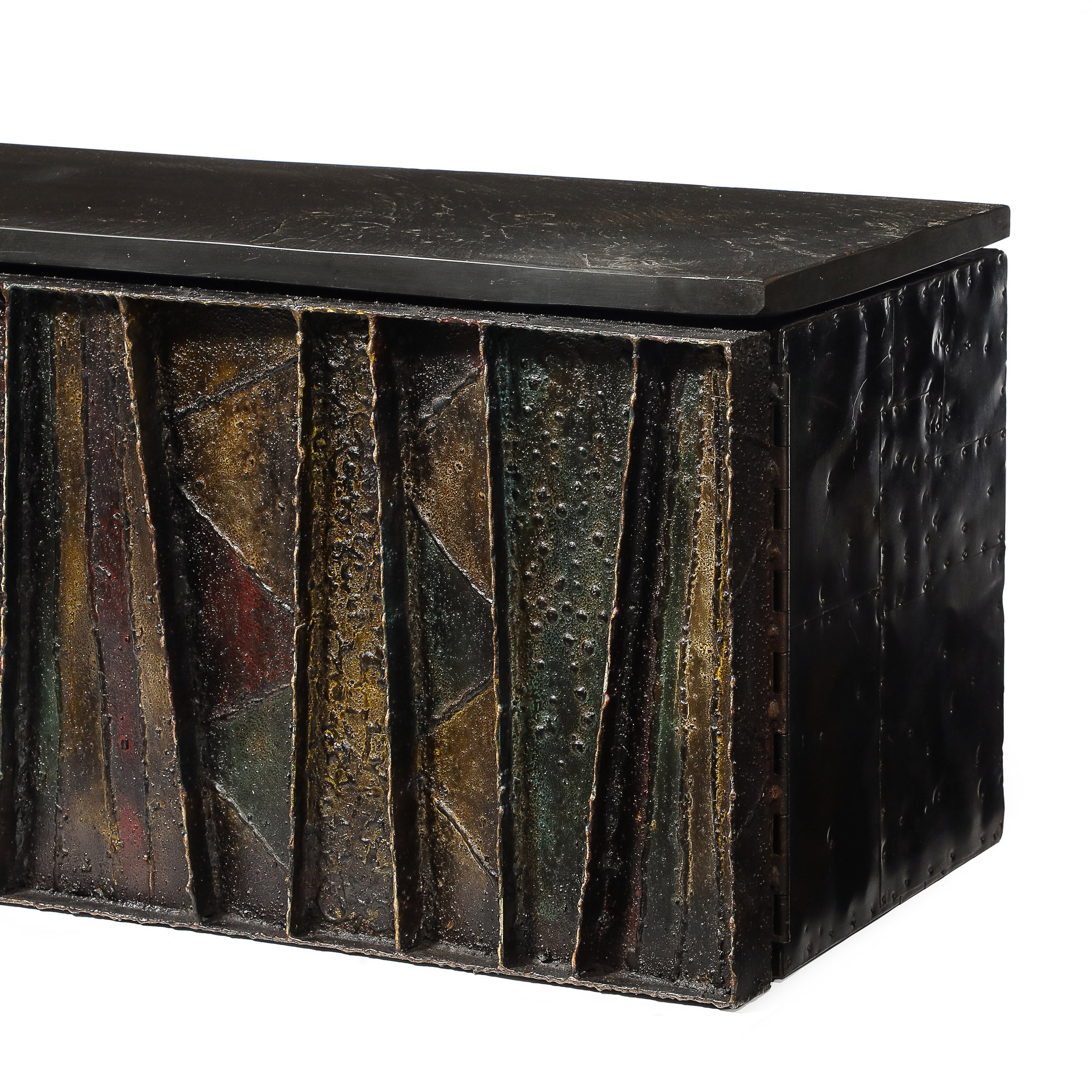
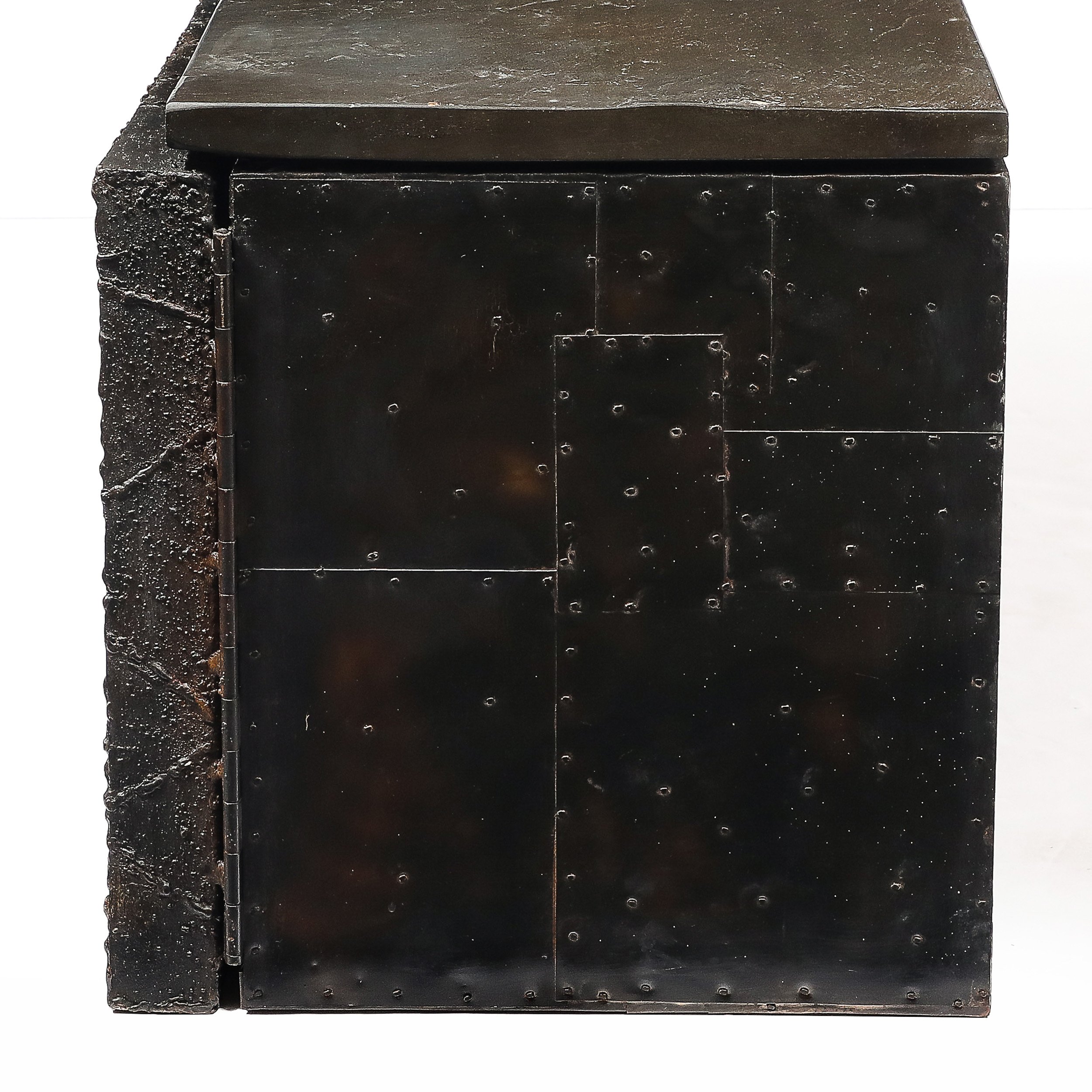
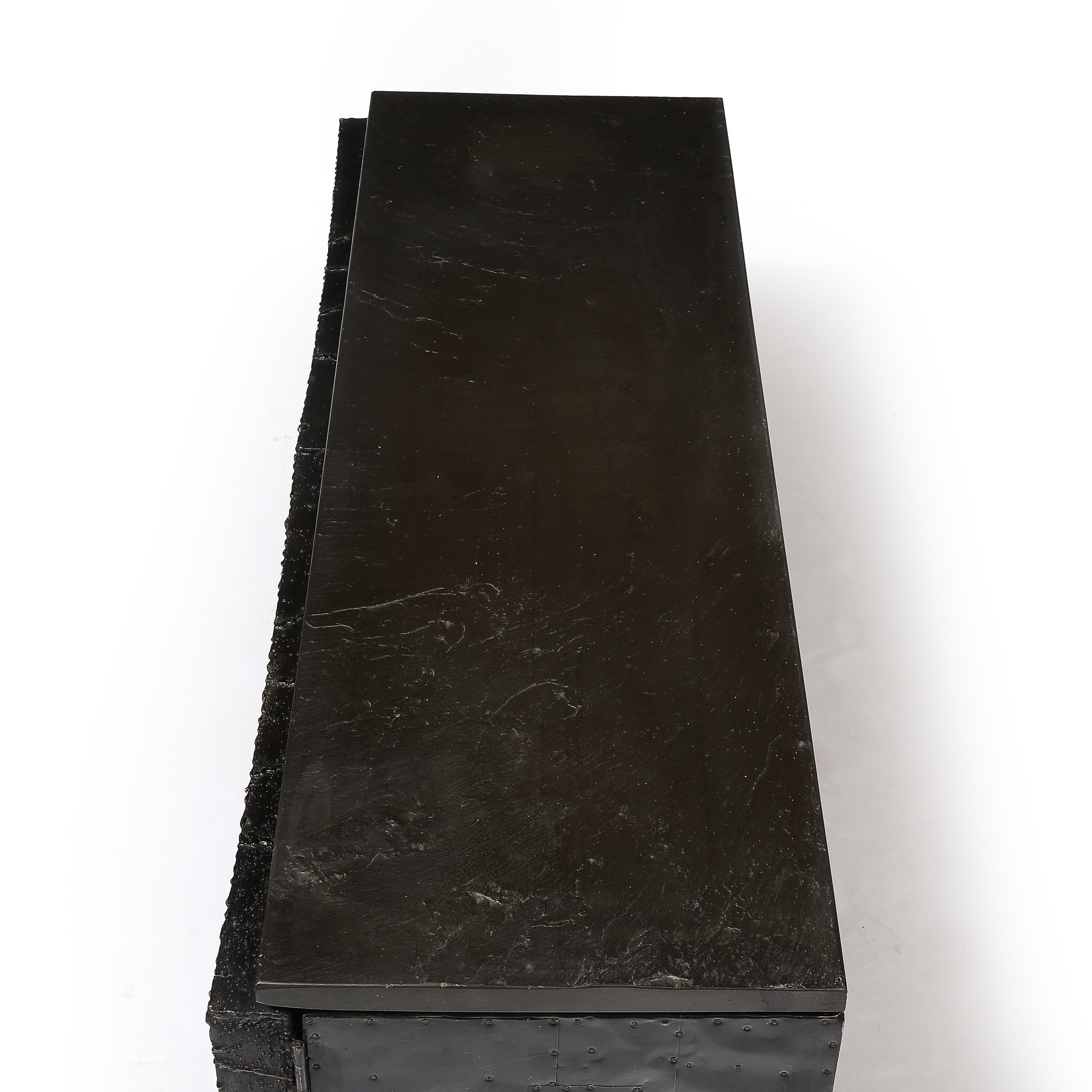
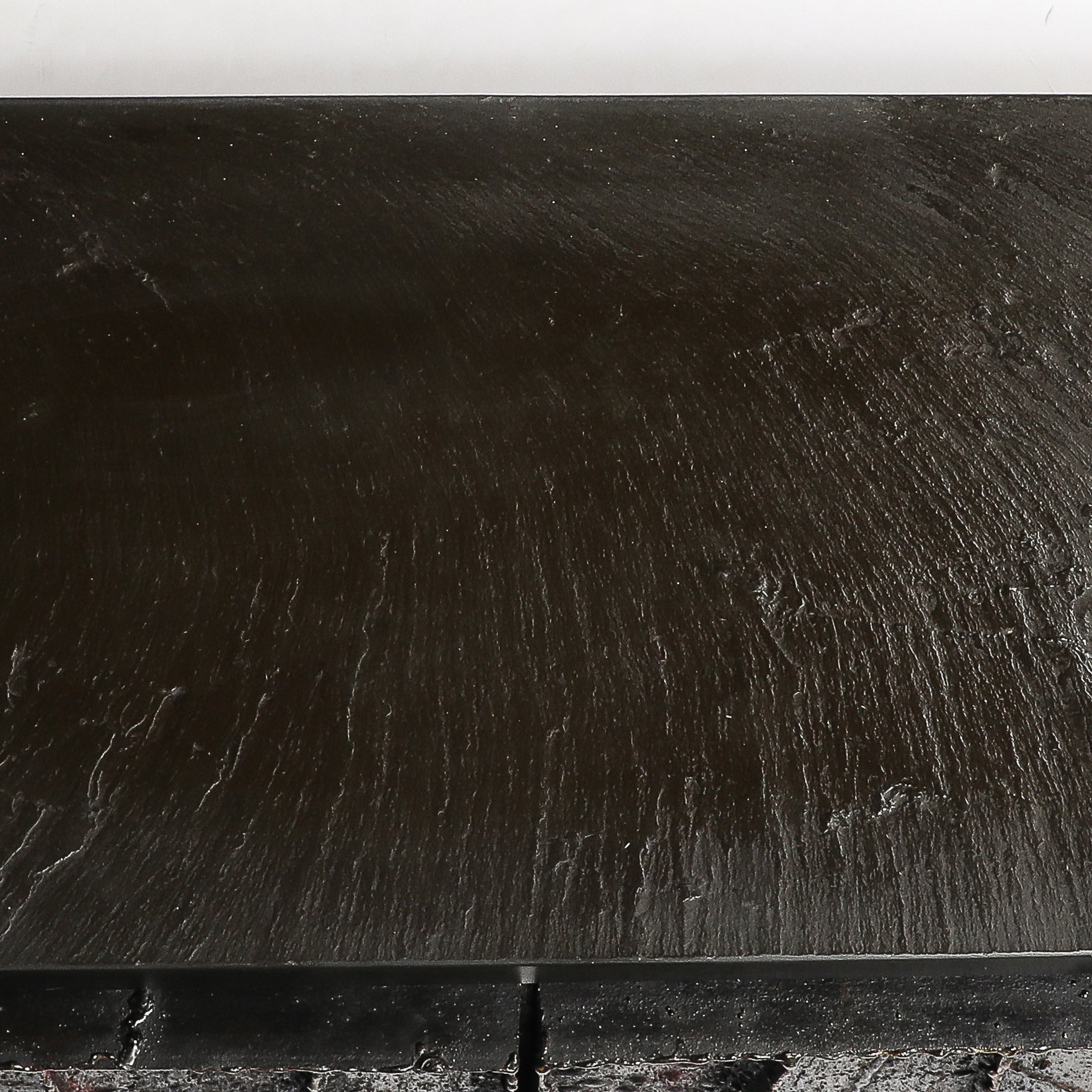
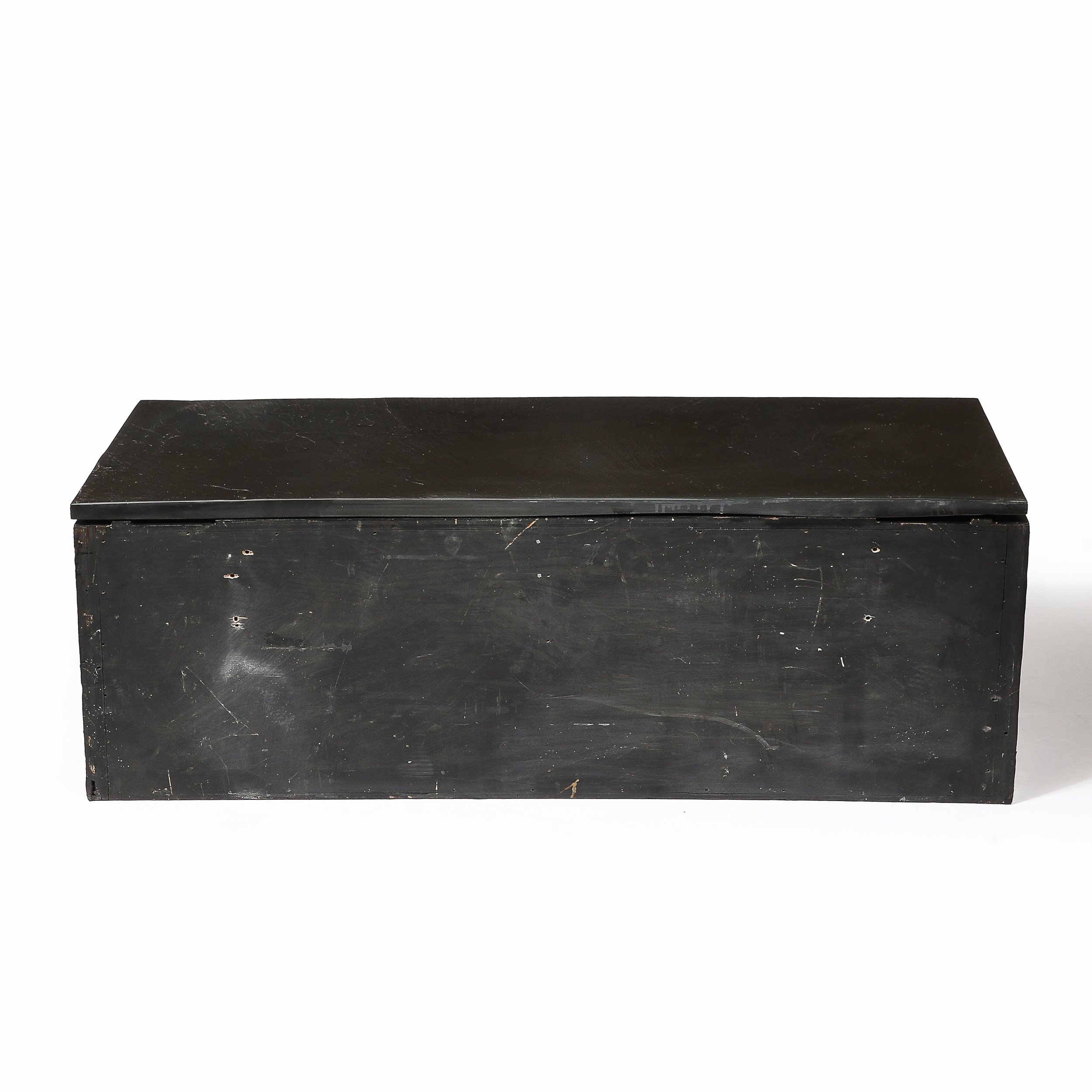
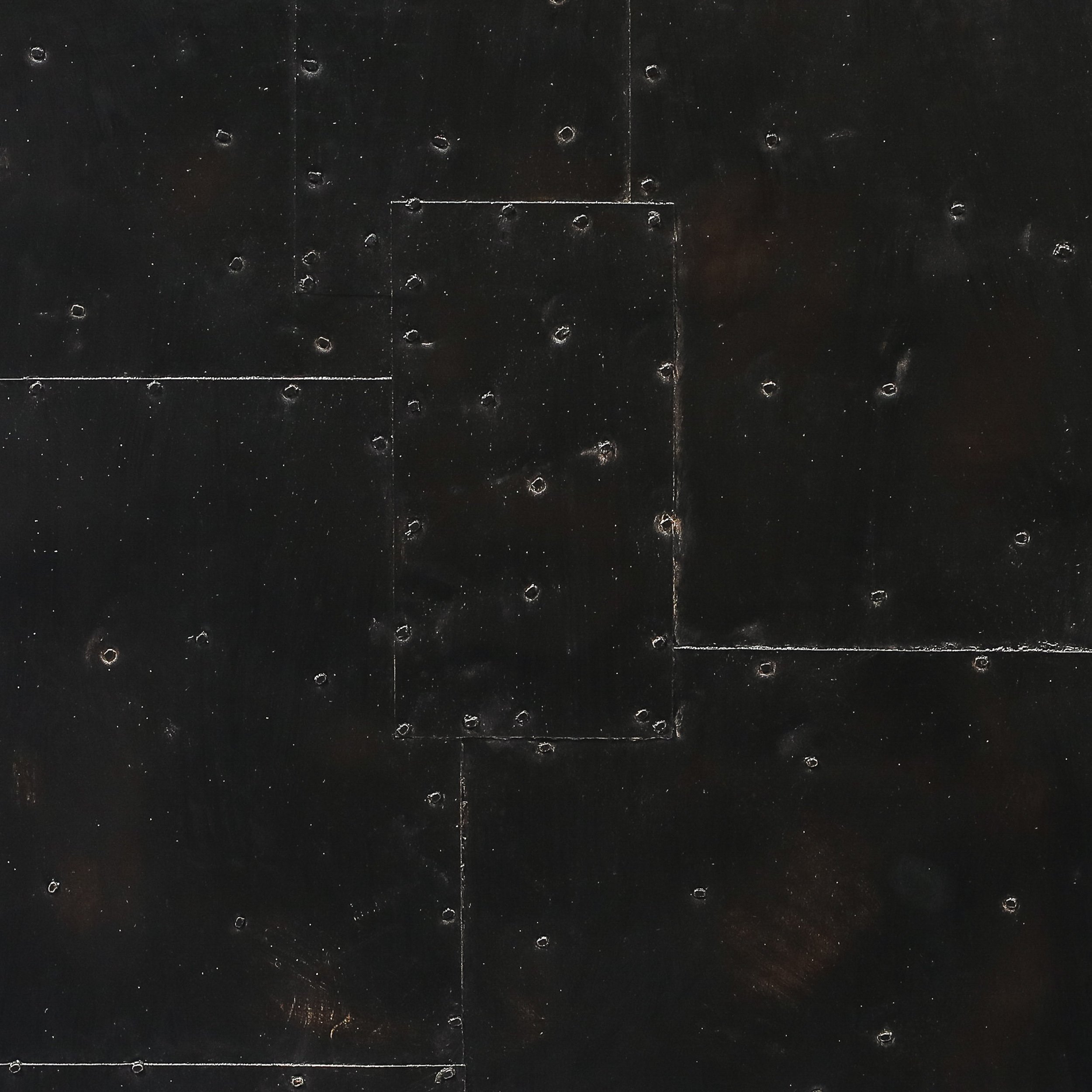
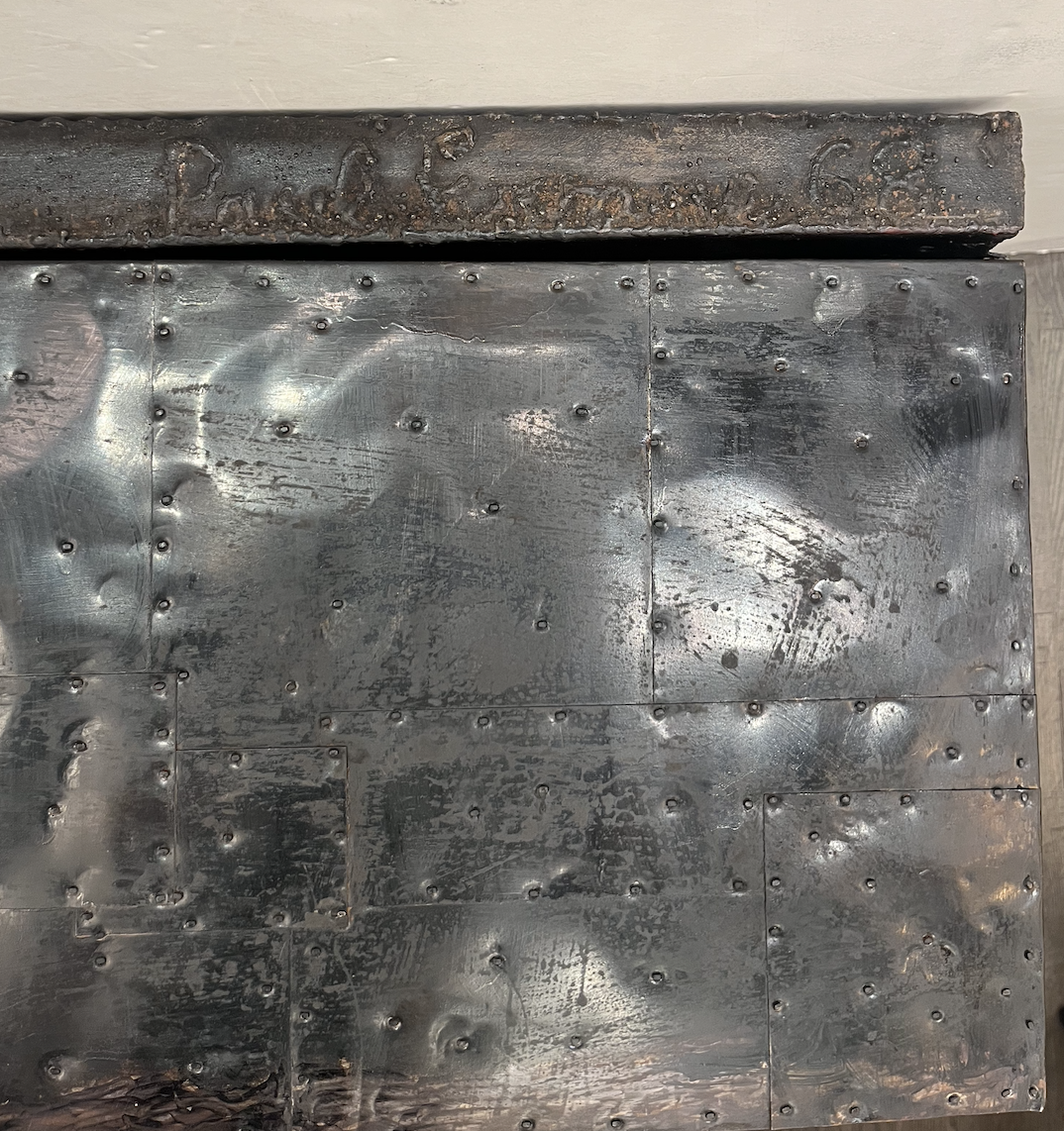
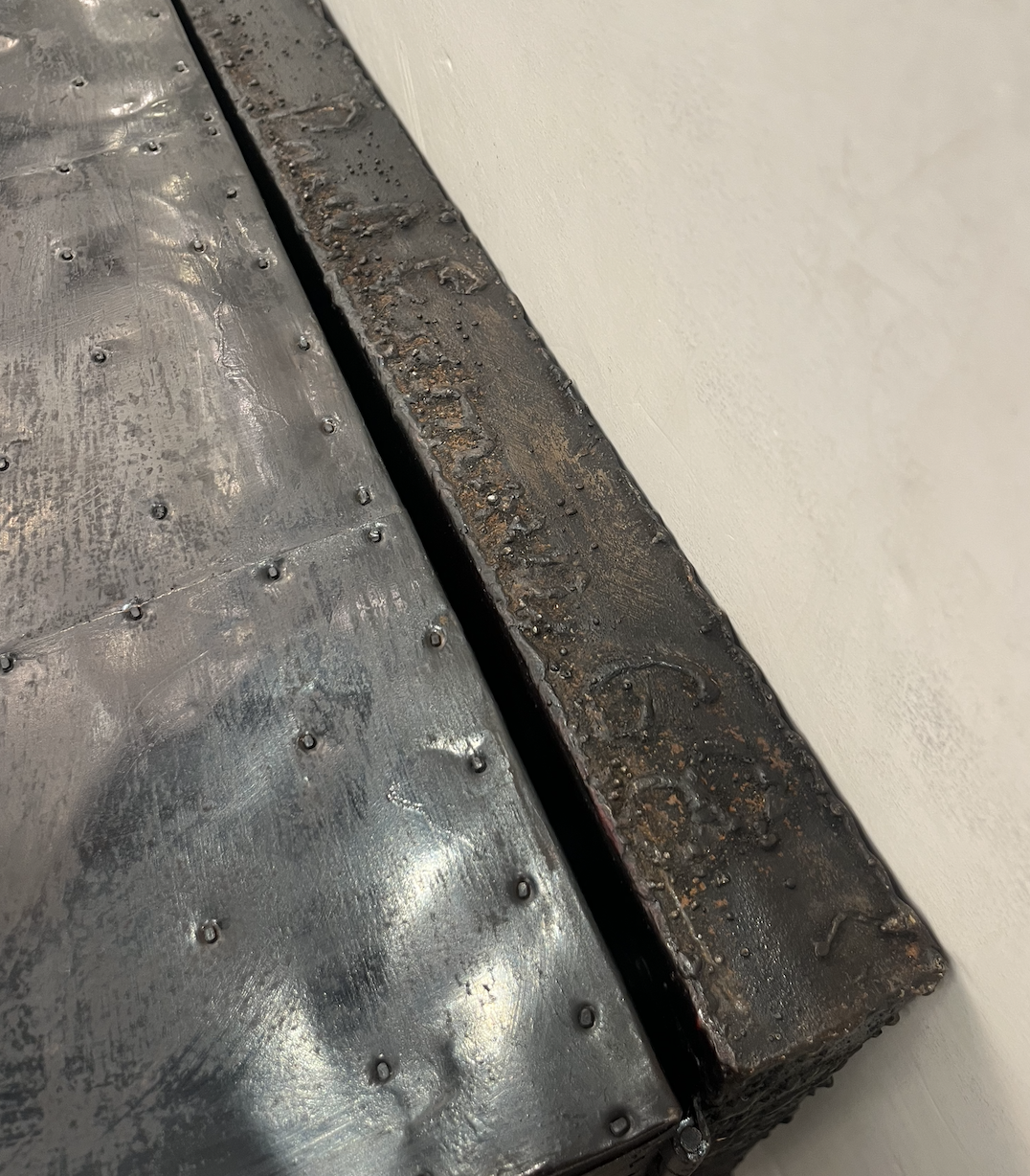
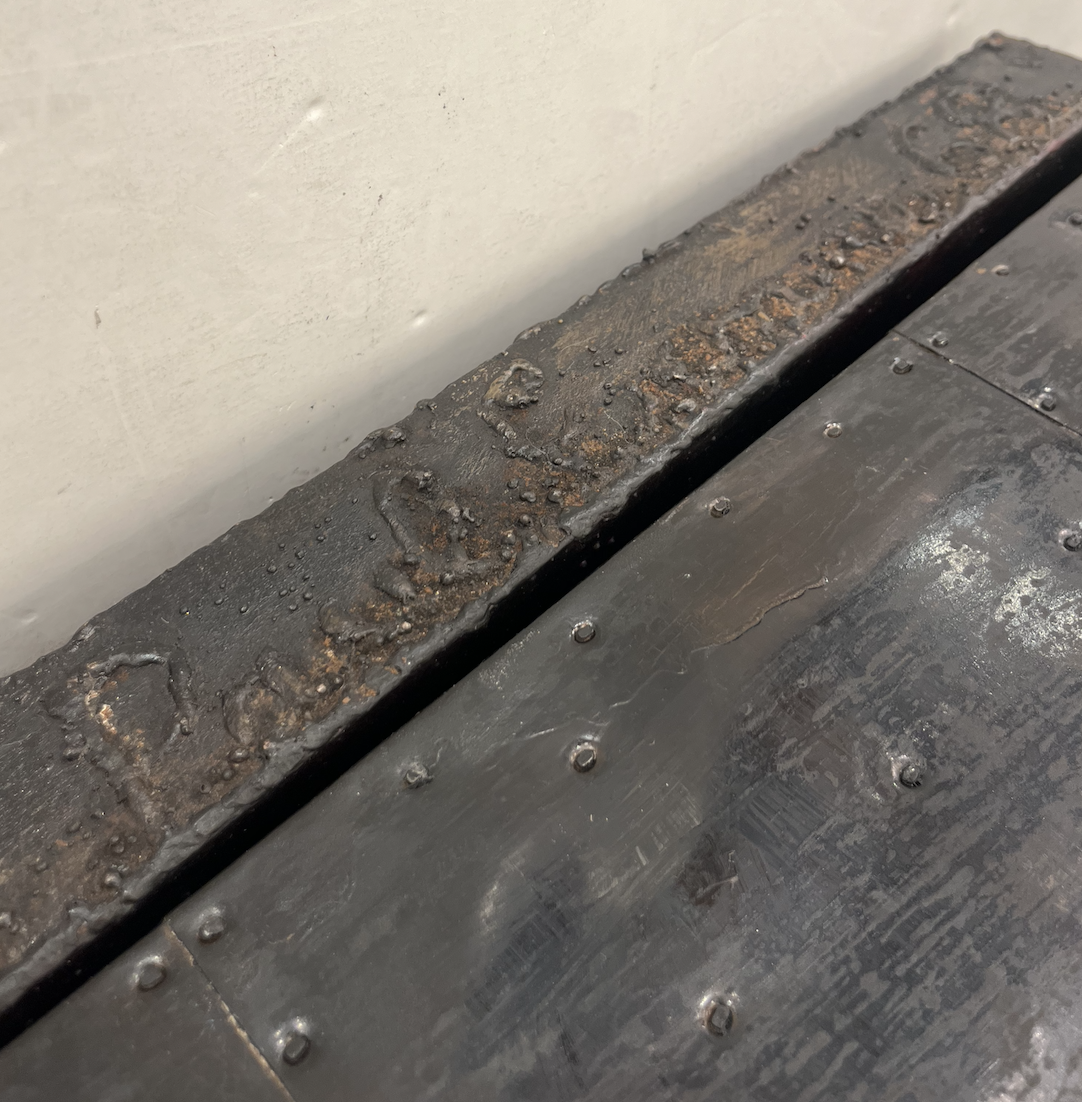
Mid-Century Brutalist Wall Mounted Patchwork Cabinet Signed Paul Evans 68
An iconic design by legendary American studio craftsman Paul Evans, this mid-century Brutalist wall-mounted cabinet exemplifies his innovative artistry and bold industrial aesthetics.
This lovely cabinet features a geometric patchwork of hand-welded metal segments with an evenly patinated surface showcasing darkened primary hues—reds, blues, and yellows. These rich, subdued tones enhance the interplay of textures, while the slate top adds a grounding element of natural sophistication. The combination of materials and colors creates a composition that's dynamic and expressive yet refined, a hallmark of Evans’ work.
Mounted as a floating wall-hung piece, the cabinet achieves a balance of strength and modernity. Signed by Paul Evans and dated 1968, it stands as a defining example of his groundbreaking contributions to modern design. In Excellent Vintage Condition.
American, circa 1968
Dimensions:
Height: 17 in (43.18 cm) x Width: 48.5 in (123.19 cm) x Depth: 16.5 in (41.91 cm)
Creator: Paul Evans (Maker)
Style: Mid-Century Modern (Of the Period)
Materials and Techniques: Metal, Slate, Welded
Place of Origin: United States
Period: 1960-1969
Date of Manufacture: circa 1968
Condition: Excellent
Reference Number: LU793445870042
PAUL EVANS
Paul Evans (1931-1987) was an influential American furniture designer, sculptor, and artist, recognized for his unique contributions to the American Craft Movement of the 1970s and his association with the renowned manufacturer Directional Furniture. His Brutalist-inspired, sculpted metal furnishings set him apart in the world of design.
Lenny Kravitz, a collector of Evans' pieces, praised his work as "stunningly beautiful, stunningly ugly, stunningly tacky, [and] stunningly sophisticated."
Paul R. Evans II was born on May 20, 1931, in Newtown, Bucks County, Pennsylvania. He pursued his education at several institutions, including the Philadelphia Textile Institute (1950), Rochester Institute of Technology's School for American Craftsmen in Rochester, New York (1950), and Cranbrook Academy of Art in Bloomfield Hills, Michigan (1952).
After settling in New Hope, Pennsylvania, Evans collaborated with woodworker Phillip Lloyd Powell. Despite financial constraints, they sourced wood from the reject pile of their neighbor, George Nakashima, a renowned woodworker and furniture designer.
In the 1950s, Evans began creating copper chests, later transitioning to sculpted steel-front cabinets. His significant breakthrough came in 1961 with a two-man show at America House, an exhibition at the Museum of Contemporary Crafts in New York, now the Museum of Arts & Design. In 1964, Evans became a featured designer for Directional Furniture, introducing several innovative furniture lines, such as the Argente series, Sculpted Bronze series, Sculptured and Painted Steel, Patchwork Copper, Pewter and Brass, and the popular Cityscape series. The New York Times noted that Evans "understood fashion, embraced youth culture, and built custom pieces for celebrities like ventriloquist Shari Lewis and singer Roy Orbison."
Evans' pieces were often signed and dated, reflecting his commitment to craftsmanship and technology. His relationship with Directional Furniture established a unique standard for creative manufacturing, ensuring every piece was handmade, finished by hand, and supervised by Evans himself at each production step.
On March 6, 1987, Evans closed his business and drove to his vacation home on Nantucket. He passed away the next morning from a heart attack at the age of 55.
In the 21st century, Evans' work gained significant acclaim, becoming highly collectible. Celebrities like Gwen Stefani, Lenny Kravitz, and Tommy Hilfiger are among avid collectors of his pieces. Evans' cabinets and credenzas have fetched over $250,000 at auctions, and in 2017, an Evans cabinet sold for $382,000. The James A. Michener Art Museum in Doylestown, Pennsylvania, hosted a retrospective of Evans' work in 2014, further solidifying his legacy in the design world.
Evans' combination of handcrafted artistry and innovative design techniques continues to influence modern furniture design, making his work a celebrated part of American art history.

